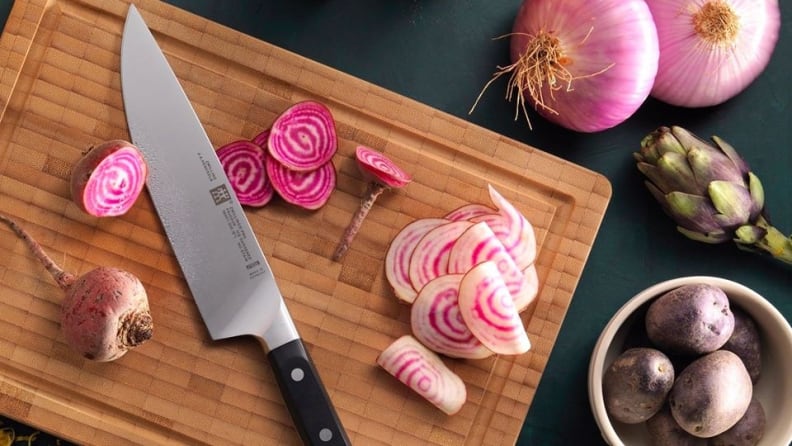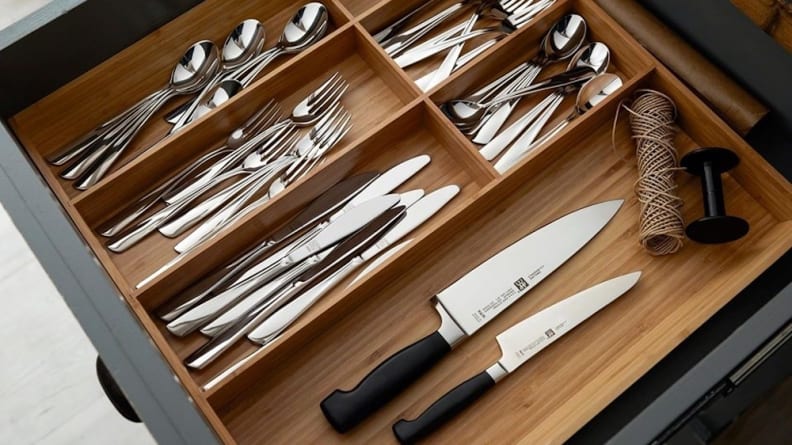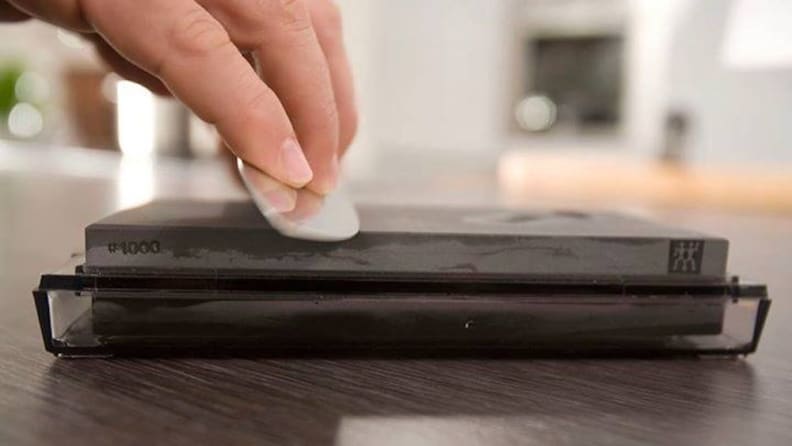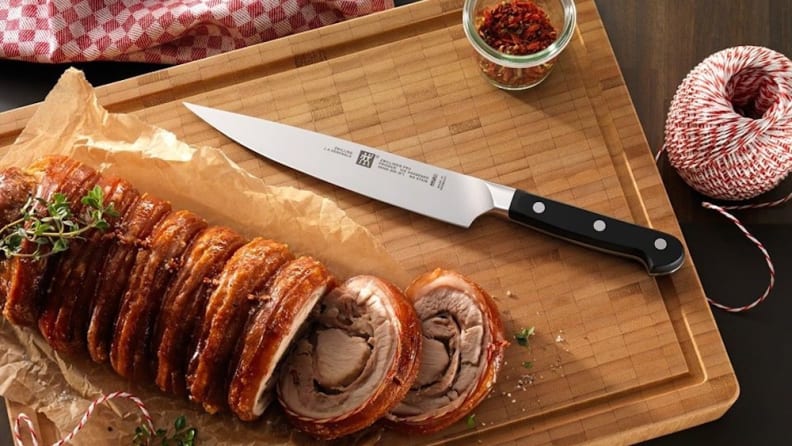 Credit:
Zwilling
Credit:
Zwilling
Products are chosen independently by our editors. Purchases made through our links may earn us a commission.
Let’s be honest: When you moved into your first apartment or home, chances are you bought yourself a cheap pack of knives for $20. I know I did. While those knives probably served you well for several years, there comes a time in every adult’s life when you upgrade to better knives—and boy, is it a game changer!
High-quality knives are sharper, more balanced, and easier to use for all sorts of kitchen prep tasks. In fact, you could even argue that they’re safer to use, as they cut precisely with little to no effort, reducing the chance of your blade going astray.
Your nice knives take care of you in the kitchen, so it’s important to take care of them, too. There are a number of cardinal sins that many people fall into when caring for knives, so here’s what you need to know to ensure your cutlery stays in tip-top shape.
Take care when washing knives

After you're done chopping, wash your knives by hand.
If you’re like me, you probably throw anything and everything in the dishwasher, but please don’t subject your knives to this cruel treatment. High-quality knives should always be hand washed in warm, soapy water with a gentle sponge. (Even if the brand says its knives are dishwasher-safe, it’s better to err on the side of caution to extend the life of your utensils.)
Why don’t knives and dishwashers mix? Anything that goes into your dishwasher will likely get banged and bumped by other items, and this can dent or otherwise harm the blade of your knives. Further, the heat and water in your dishwasher can damage the handle, taking precious years off its life.
For the same reasons, you don’t want to leave knives soaking in water, and it’s best to dry them off right away after washing. If your knife is made from carbon steel, you’ll also want to lightly oil it to prevent rusting.
Don’t store them in a drawer

Don't store your knives like this!
Once your knives are squeaky clean, it’s time to put them away. Again, your instinct may be to simply toss them into your utensil drawer, but this is the worst thing you can do! Not only does it increase the chance of your knife getting bumped, banged, or dinged, but it’s also dangerous, as you can easily slice your finger if you accidentally grab the blade.
There are a few knife storage options you’ll want to consider instead. If you really want them tucked away, invest in a knife guard—these little sheaths will protect both the blade and your fingers. Blade guards come in all shapes and sizes to fit just about every knife in your kitchen.
Another option is to store your blades in a knife block. These countertop blocks are designed to house a variety of knives, and as an added bonus, your favorite blade will always be within arm’s reach when you’re cooking.
Finally, you can opt for a magnetic knife strip, which mounts to your wall and allows you to hang up knives and other metal utensils.
Keep them sharp

All knives need to be sharpened periodically.
As mentioned above, a sharp knife is a safe knife, so if you notice your blades are looking dull, it’s time to break out your knife sharpener or whetstone. Our favorite knife sharpeners will make this process a breeze, but you can also opt to sharpen knives with a whetstone—the choice is yours.
Either way, make sure you take your time to ensure the whole blade is adequately sharpened. You can test the final result by holding up a piece of paper and trying to cut through it. If your knife is sharpened correctly, it should slice through the sheet without snagging or tearing.
Practice proper cutting technique

You should always use a cutting board with your knives.
Even the best tools can break if you’re not using them correctly, and this holds true for your knives. You should always use a plastic or wooden cutting board (here are some of our favorite options), and avoid using your knife on marble, metal, glass, or other hard surfaces.
Additionally, you shouldn’t drag your blade sideways across the cutting board—for example, to scrape ingredients into a pan. (I know I’m guilty of this!) While seemingly harmless, this can dull the blade. Oh, and please don’t use your nice knives to open jars or other non-chopping tasks.
As you can see, knife care is a two-way street. If you treat your knives right by following these steps, they'll serve you and your family well for years to come.
